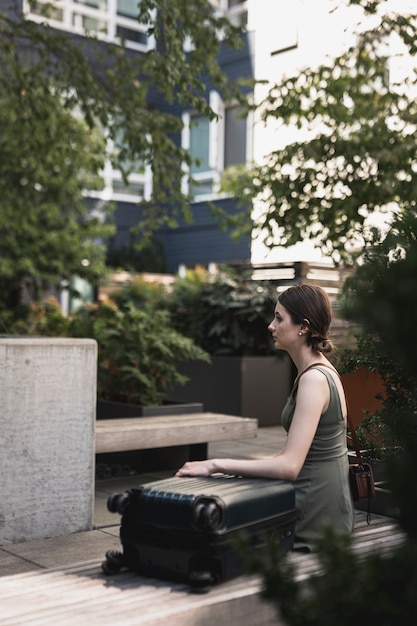
Munich is a delightful European city with charming cobblestone streets, lively beer gardens, and a rich Bavarian culture. It’s a fantastic place for expats, freelancers, and digital nomads because of its welcoming nature and vibrant expat community. The city offers ideal conditions for both work and travel.
I settled in Munich during the summer of 2017 after traveling around Europe for eight months. Despite not knowing German, I found it surprisingly easy to live and work there as a freelance writer. The city has a robust expat community and many co-working spaces, making it a prime destination for digital nomads.
Though Munich might not be the cheapest European city, it still provides excellent value for money and has decent bargains. Comparing it to cities like London, Paris, and Amsterdam, Munich can actually be more affordable, even though it is considered one of Germany’s most expensive cities due to its rapid growth and international business presence.
Housing costs in Munich are high, particularly for private studios or one-bedroom units in the city center, which can range from 1000€ to 1500€ per month. Shared flats are more affordable, costing between 400€ and 1000€ monthly. When looking for accommodation, it’s important to understand the difference between “warm” (utilities included) and “cold” (utilities not included) rentals. Furnished apartments also tend to cost more but are convenient for short-term visitors.
Groceries and produce in Munich are cheaper compared to the UK and the USA, and cooking at home can save you a lot of money. However, the city’s diverse and delectable dining scene—from inexpensive doner kebabs to high-end Michelin restaurants—is worth exploring. You can find affordable bars and beer gardens throughout the city, but there are also expensive lounges for crafted cocktails if you prefer.
Munich’s public transportation system is efficient and comprehensive, including underground subways, trams, and buses. Tickets can be used across all modes of transport, and taxis, Ubers, and various rideshare options are also available. You can even rent bikes, e-bikes, e-scooters, and Vespa scooters.
Choosing a neighborhood to live in can significantly impact your experience in Munich. Altstadt, the city’s medieval heart, is vibrant and touristy, while Schwabing offers a mix of local culture and modern amenities. Maxvorstadt is ideal for students and young locals with its universities and arts scene, and Haidhausen is known for its affluent townhouses and nightlife.
Munich also boasts a variety of cultural and historical attractions. The Viktualienmarkt, English Garden, Nymphenburg Palace, and Hofbräuhaus are must-visits. Olympia Park offers fantastic views and hosts numerous events throughout the year.
Staying connected in Munich is straightforward with easily available prepaid SIM cards and widespread WiFi access in public spaces. The food scene is diverse, with numerous international and traditional German dining options.
Munich’s efficient public transport makes getting around easy, even for those not familiar with the German language. Tickets are conveniently purchasable and valid for all transport modes, but remember to validate them to avoid fines.
Visiting or living in Munich might require a visa, especially for stays longer than 90 days. US and Canadian citizens can stay for up to three months without a visa, but longer stays will need a student visa, work visa, or language school visa. British citizens can stay for 90 days without a visa, though this may change post-Brexit.
Living in Munich has been an incredible experience for me. The city is clean, safe, and modern, making it an excellent place for digital nomads. Its location also allows easy access to other top destinations across Europe. If you give it a try, you might find that this beautiful city captures your heart just as it did mine.




